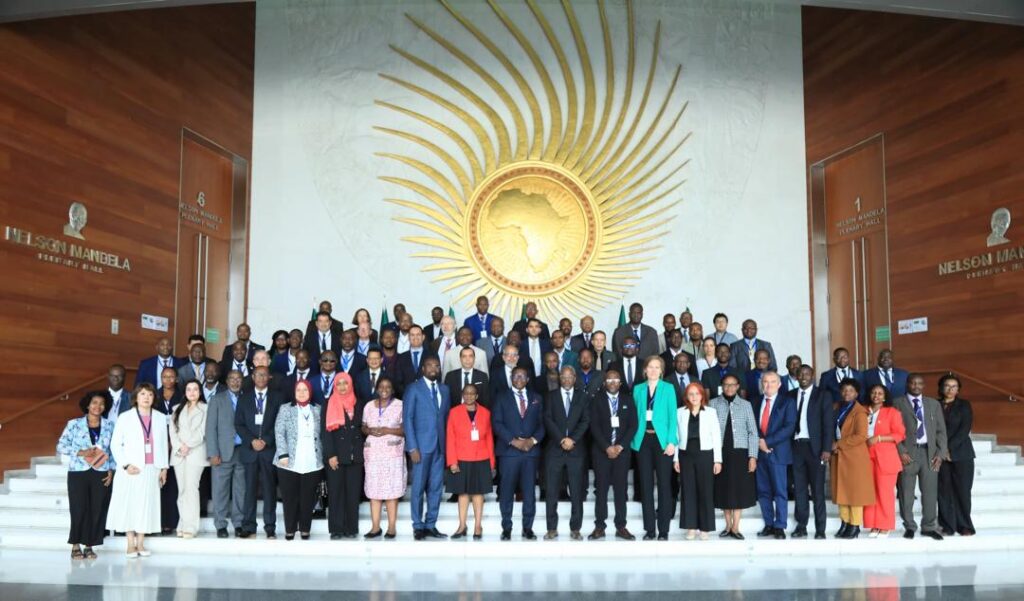
30 June 2025; By Dr Baboloki Semele-Addis Ababa, Ethiopia: In a significant step toward unifying Africa’s fragmented electricity markets, the African Union Commission (AUC) convened its first High-Level Capacity Building Workshop for Member States on the implementation of the African Single Electricity Market (AfSEM) and its technical blueprint, the Continental Power System Master Plan (CMP). The landmark meeting, held over two days in Addis Ababa, Ethiopia, marks the official inauguration of the AfSEM High-Level Technical Oversight Committee, a pivotal governance structure set to drive the continent’s transition to a sustainable, integrated, and investment-ready energy future.
AfSEM, a flagship initiative under Agenda 2063, seeks to bridge Africa’s vast electricity access disparities, ranging from below 19% to over 90% by harmonizing regulatory frameworks, enhancing cross-border electricity trade, and unlocking the continent’s diverse energy potential. CMP, its technical backbone, offers a coordinated infrastructure blueprint for achieving long-term energy security and inclusive growth. The two-day high-level meeting brought together key stakeholders, including representatives from African Union Member States, Regional Economic Communities (RECs), Power Pools, Development Finance Institutions, Regulatory Authorities, Renewable Energy Centers of Excellence, and key technical partners such as the AfDB, EU, GIZ, and UNECA. Also in attendance were diplomatic representatives to the African Union and senior advisors from the African Union Development Agency (AUDA-NEPAD), AFREC, AFSEC, and AFUR. Presenting his remarks, AUC’s Director for Infrastructure and EnergyDr Kamugisha Kasaura highlited that this meeting is a critical opportunity to institutionalize AfSEM’s governance engine, refine implementation guidelines, and mobilize multi-sectoral collaboration around Africa’s clean energy future. Dr Kazaura says AfSEM is not just about connecting grids but about connecting opportunities, economies, and people across borders. The workshop’s sessions spanned governance coordination, regulatory harmonization, renewable energy strategies, and energy market de-risking. Key themes included regional electricity trading frameworks, off-grid policy alignment, and advancing manufacturing capacity for renewable energy technologies within Africa. The Oversight Committee, which now begins its formal role, will guide the implementation process through coordination, technical reviews, and high-level advisory support to the African Union’s Ministerial Council on Energy.
Breakout sessions will offer in-depth technical discussions on operationalizing AfSEM guidelines, rolling out harmonized regulatory instruments, and mapping financial de-risking tools to attract investment. A proposed Electricity Financial Market and Carbon Trading Platform to be piloted in 2026 was among the key innovations discussed. Participants will also review the status of AfSEM’s Strategic Planning Coordination Unit and Technical Working Groups, agreeing on implementation timelines and coordination roles between AU institutions, RECs, and development partners. It is expected that by the close of the second day, stakeholders would have validated AfSEM’s emerging roadmap and reaffirmed their commitment to integrating the market principles into national energy and climate strategies. A draft policy recommendation, to be presented to the Specialized Technical Committee on Energy and Transport in October, calls on all AU Member States to formally adopt AfSEM and CMP as core components of their development agendas. A renewed political momentum and a continent-wide pledge to unlock Africa’s energy potential through collaboration, innovation, and alignment with the African Continental Free Trade Area (AfCFTA) and the African Green Industrialization Strategy is anticipated as one of key products of this high level meeting. According to the meeting concept noite, as the African Union accelerates toward a unified electricity market, AfSEM is poised not only to power homes and industries, but to power the future of African integration, equity, and prosperity.